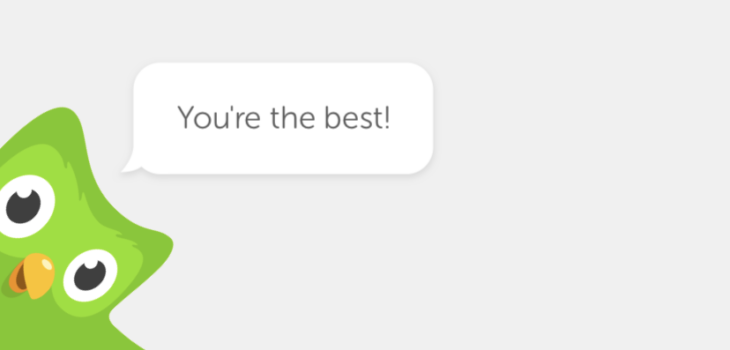
Duolingo Portuguese language learning not the same as real…
I spent almost a year learning Duolingo Portuguese.
If you don’t know, Duolingo is an app that teaches a variety of languages. Its mascot is a little green owl who encourages you to work at it daily and tells you when you’ve got five or even 10 right in a row! Woot!
Duolingo Portuguese (Português)
I love learning languages. French was fantastic. I took four years in high school and enough in college to qualify for a minor. Even today, I could dredge up enough French to get by. It might not be pretty, but I could do it.
I thought learning Portuguese would be good. Maybe even fun.
When I’d tell people I was moving here, they often would ask if I knew the language. I explained I was learning it.
Duolingo is great, by the way. It’s meant to teach you a language the way children learn. Not really repetition, but kind of. (For example, I never did learn how to count, 1-2-3, but I know my numbers.) Lessons focus on different language aspects.
Duolingo Portuguese (Português) learners are encouraged to wear headphones to get the distinctions of the language. (For example, in Português, Ns and Ms are flipped. Some Rs turn into Ds. Ds sometimes are Zs or soft Gs, and so on.)
Duo recommends you repeat things out loud. Sometimes, you have to do that in order to move forward in the lesson.
After just shy of a year – and I was diligent, putting in my time nearly every day – I figured I’d be OK.
Ha.
Did I learn the wrong language?
No, really. If I couldn’t read the language, I would be sure I had learned the wrong one. Português sounds NOTHING like it does on Duolingo Portuguese.
Of course, it’s fast — super fast.
My hostess tells me Portuguese people speak really quickly. Her boyfriend, who is Portuguese, proves her point. Even when I think I should be able to understand what someone is saying, I pick up “I am …” and that’s it. Nothing beyond that.
Seriously, it doesn’t even sound like the language I’ve heard on Duolingo for literally months. Even when they speak quickly on Duolingo, which they do (they also offer the turtle speed to slow it down so you’re sure you’ve heard it properly), it doesn’t sound like real life.
To compensate, I smile and say, “Eu não falo …” and by the time I’ve got out the “eu” for “I,” they’ve already switched to English or have started to point at what they mean. Guess my Midwestern accent doesn’t help.
At least with French, I had a pretty good accent. I learned the intonation. With Duolingo Português, I have not, and I know it. Even trying to mimic the female or male voices on the app doesn’t help. I certainly don’t sound Portuguese — let alone Português.
Learning a little Portuguese
Friends told tell me I’d pick it up when I moved here. At that time, I thought it was possible. Now, I’m not so sure.
Living where I do, fewer people speak English, but they don’t seem to want to let me try Portuguese.
And really, I want to speak Portuguese. That’s part of being here. I know how to speak English, I’d like to at least make an attempt at another language.
Perhaps I am not a total lost cause. On a walk, I was following a college-age couple, chattering away. I had no idea what they were saying. We came to a crossing sign that turned from green to red. “Vamos!” the young woman said with urgency.
Voila, I thought (yes, mixing my languages even in my brain). I know that word! And so does everyone else, I realized, as it is the same word in Spanish.
Short-lived success. Maybe I get points because I realized it was Português, too. Maybe.
Be a Better Writer Tip
I was torn in this article if I should use accent marks.
When I worked for the newspaper, we did not use accents, because they did not always translate well into print. The printing equipment from ages past was actually better because it was fixed. You could put an accent in, and it was one solid piece of type.
When we started using computers, though, we were able to use all sorts of accents, but they didn’t always print properly.
The Associated Press advised against using accents, so for many years, I ignored accent marks.
Of course, I learned the ones I needed in French, even calling them by their French names. (I don’t think I know their names in English …)
Then, Portuguese (Português) opened up a world of accents, and I’m supposed to pay attention to them. Duolingo notes when I have missed an accent mark in my typing.
Because I am not printing anything related to this column, I guess it’s acceptable to use them.
You’ll need to decide if you should use accents in your writing.
You can find accents and other language letters in Word by going to the Insert tab, then to Symbols, and drop down to More Symbols.




1 COMMENT
> Did I learn the wrong language?
Sorry to be the bearer of bad news, but yes, you did. Duolingo teaches Brazilian Portuguese which, as you discovered, has very different pronunciation to European Portuguese, as well as some differences in vocabulary and grammar (most notably use of different “persons” in verb conjugation).
I imagine that you’ve long-since adjusted to the difference, and Duolingo won’t have been a complete waste of time; but there are other apps that teach European Portuguese that might have been a better starting point.